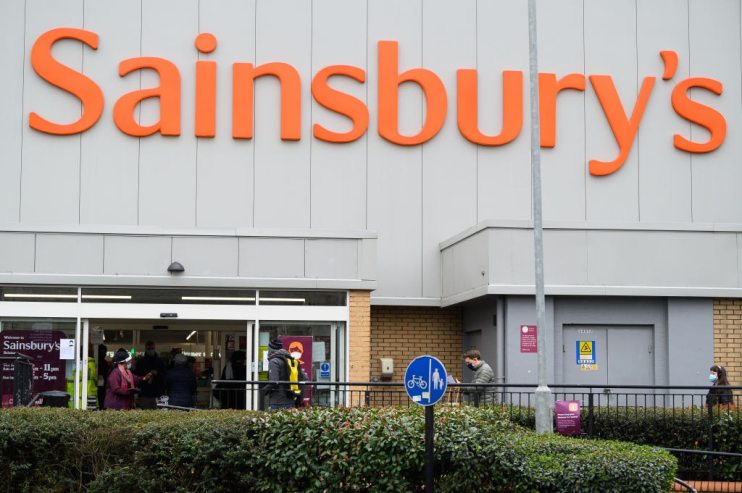Time is up for supermarket challenger banks, analysts say

The consolidation of the UK’s mid-sized banking sector will continue in 2024, analysts have told City A.M., after Sainsbury’s confirmed it was exiting the market.
The supermarket giant announced on Thursday morning that it would undertake a “phased withdrawal” from its banking business following a strategic review. There are no immediate changes for customers.
Simon Roberts, the firm’s chief executive, said the move was in line with Sainsbury’s “food first” strategy launched in 2020, which involves concentrating efforts on the core retail businesses.
Sainsbury’s added that it was “exploring a number of options” for the bank, opening the door to takeover bids.
The news comes after reports that Tesco has been courting bidders for its banking arm amid a similar strategic rethink. Tesco did not respond to a request for comment on the claim.
“This is absolutely the end of supermarket involvement in UK banking,” said Clive Black, consumer equity analyst at Shore Capital.
“Both businesses are probably going to end up consumed in the incumbent banking system, and I’m sure there will be further consolidation in that arena.”
Sainsbury’s plans for all its financial products to be provided by third parties, similar to its insurance offering.
Steve Clayton, head of equity funds at Hargreaves Lansdown, said this decision “speaks volumes about the state of UK retail financial services”.
He added: “Sainsbury’s offers a book of generally decent quality banking customers all nicely parcelled up, but nobody is prepared to pay to acquire the book, suggesting a lack of confidence in the ability to extract a decent margin going forward.”
Over the last two decades, supermarkets have sought to earn more money from their customers beyond food and drink. These ventures have included telecommunications, broadband, restaurants, energy and more.
Sainsbury’s Bank and Tesco Bank both launched in 1997. Sainsbury’s ran its banking business as a joint venture with Bank of Scotland until taking full ownership in 2014.
Russ Mould, investment director at AJ Bell, said: “With the company openly saying that it has a ‘food first’ strategy, everything else in the business has played second fiddle in recent years.”
The formal winding down of Sainsbury’s banking arm comes after a period of scaling back its operations and speculation that the supermarket was planning to sell the business.
It ceased new mortgage lending in 2019 and formally exited the market when The Co-operative Bank picked up Sainsbury’s mortgage portfolio for £464m last August.
“Grocery store banks may lack the scale and potentially technology to compete with the incumbents and more focused players in the banking sector,” said Will Howlett, financials analyst at Quilter Cheviot.
“On top of this, there’s been a huge increase in competition. The likes of Monzo, Starling, Metro and more recently Chase are a few examples, which have taken up market share making it harder and harder for the grocery store banks to grow.”
Analysts have predicted that the UK’s mid-sized banking market is in store for a wave of consolidation as higher interest rates put more pressure on funding costs and successful challengers are now flush with cash.
Co-op Bank chief executive Nick Slape echoed this sentiment to City A.M. last summer. Now his firm has itself entered exclusive talks with Coventry Building Society, which could lead to a merger this year.
Mould added that as supermarkets go back to their bread and butter, “it feels as if we’re now in a new wave of this movement”.